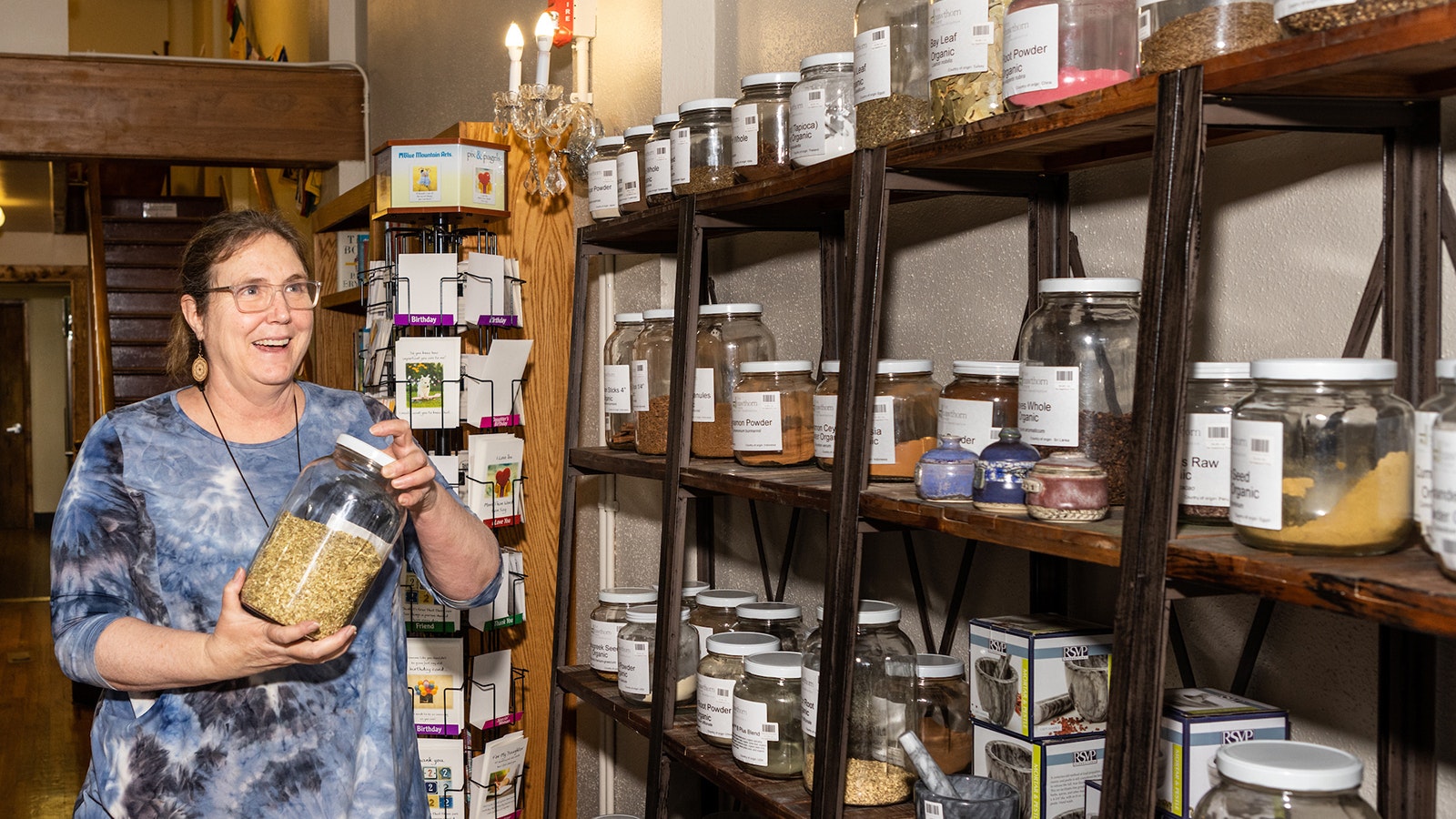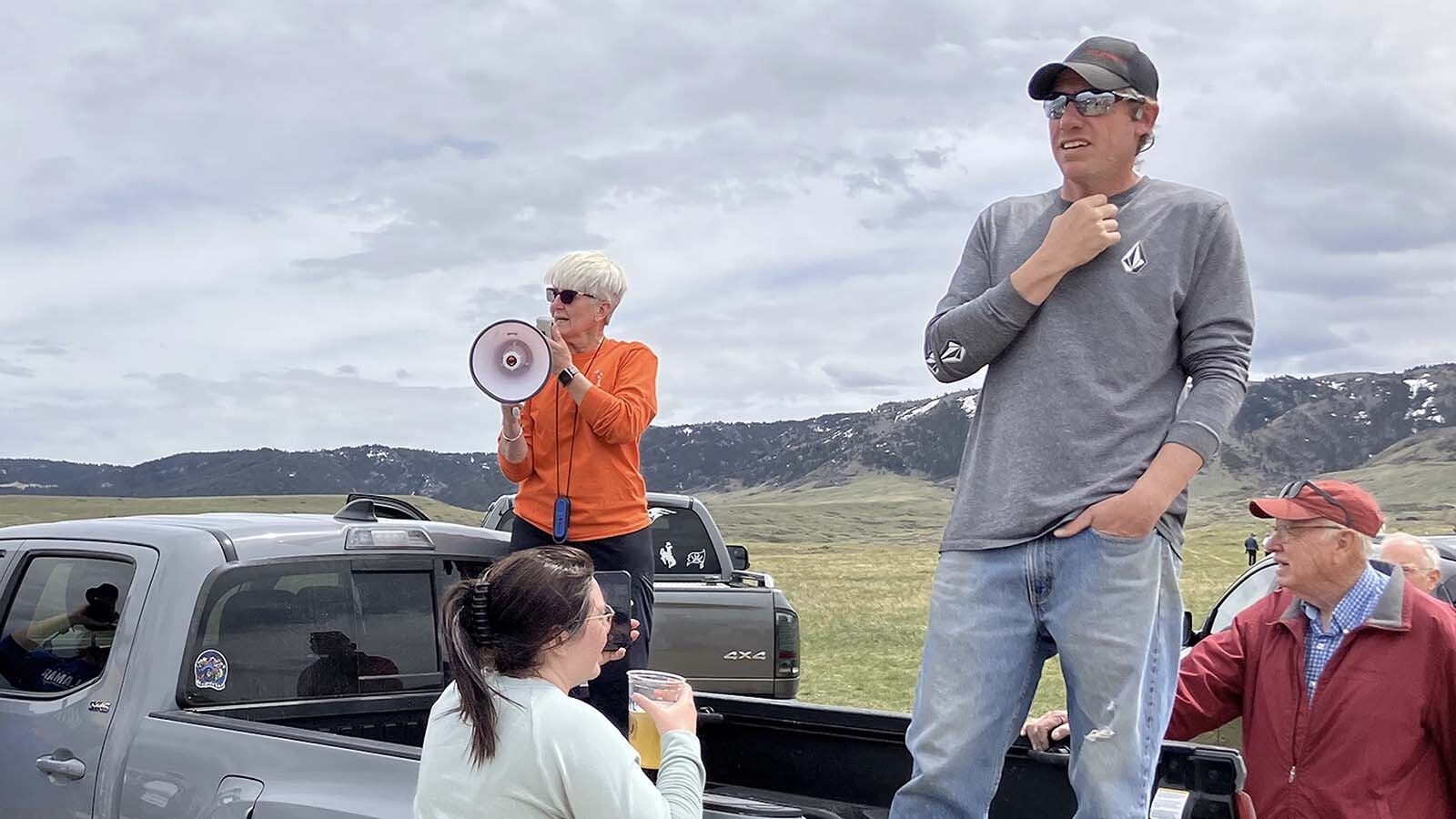Crush a little lemon balm in the hand and right away, the scent is noticeable and, quite clearly, something special.
It’s lemony and fresh — just as its name would imply — and has an immediately calming, soothing effect that’s attractive, without noticeable drowsiness.
Herbalists have long recommended this easy-to-grow herb as a mood brightener, and it is a popular base for many teas.
Melissa officinalis — its official scientific name — is a member of the ever-popular mint family. That means it grows like a weed once established in the garden, which is all good if you mean to drink lots of it for a calming tea.
Despite its longstanding reputation in the herbal apothecaries of yore, it’s only recently that science has taken note of this herb’s mood-lifting properties. The research is promising, even if for herbalists like Susan Allen, it just confirms something ancient herbalists have been saying for hundreds of years.
“There was an Arabic practitioner who said that Melissa officinalis maketh the heart merry, and so that is very true,” Allen told a group of gardeners attending a recent tea blending workshop at the Garden-to-Market conference in Cheyenne. “If you drink it every day, if you drink a cup of it every day, I guess he noticed that somebody was – whoever his patient was – was actually a little bit more bright.”
That said, Allen is careful to couch this idea with an important caveat.
“If you’re just feeling a little blue for a few days, that’s one thing,” Allen said. “But if you really have depression, you need to see a doctor.”

Food As Medicine
The idea of food as medicine and herbs as medicine are both growing trends in America. But they are not what prompted Allen to start The Hawthorn Tree in Cheyenne.
Herbs are a natural fit for Allen. She’s been growing things for going on 30 years and once managed her parents’ well-known garden center on Dell Range Boulevard. She grew organic produce for a while in Windsor, Colorado, as well.
But ultimately, it was a crucible of change that pushed Allen in this particular direction.
“My dad got dementia,” Allen told Cowboy State Daily. “And I got West Nile while I was farming, which kind of kicked off a bunch of other issues for me, like Epstein-Barr, which is very common with mono, but sometimes people can get it depending on what’s going on in their life.”
Allen was quite sick when she returned home to Wyoming to help her mother care for her father.
“I started, you know, researching and working with my primary care practitioner on ways to heal,” she said. “Because you can’t ever really kick West Nile or Epstein Barr.”
That led to a smorgasbord of seemingly never-ending medical tests — MRIs, blood work, you name it.
Along the way, Allen started working with naturopath in Broomfield, Colorado, who helped get her health back on track.
Not An Instant Success
Herbal medicines made a difference for Allen, but it wasn’t like popping a pill and everything was instantly all better and smiles.
“Herbs are kind of a long game,” Allen said. “It includes nutrition, mindset, meditation, kind of going inward.
“I mean, when you’re sick like that, with a chronic something, it really kind of gets you down. So, it was like looking at ways to buoy myself up during those times.”
One of the things that really helped Allen were long soaks in Epsom salt baths. They helped ease her chronic pain.
Eventually, though, things began coming together for her health, and Allen decided to do an even deeper dive.
She took a year-long training with Laura Cascardi, a well-known and frequent figure at the annual Wyoming Bee College and Garden-to-Market event in Cheyenne, to become a certified herbalist.
Cascardi taught her about more than just plants. Her classes included anatomy, physiology and nutrition, as well as botany and medicine-making.
“We did a lot of hands-on work with herbs, as well as field trips and wildcrafting, too,” Allen said. “So, it was a lot.”




What Hawthorn Means
Her recent and ongoing training informs everything Allen does at The Hawthorn Tree, even down to the store’s name.
“Spiritually speaking, hawthorn means love and protection,” Allen said. “From a pharmacopeia standpoint, hawthorn berries were used for the heart as medicine.”
But it’s always been one of her favorite trees, too.
“They’re just tough,” she said. “The native species is super tough. And you’ll find them kind of gnarled and devoid of water and, you know, imperfect in some ways. Like we all are, I guess, and like I am, too, you know.
“But they are just tough, tough trees that you’ll see growing out of all kinds of weird places.”
Allen has decorated The Hawthorn Tree with old-time apothecaries and tea houses in mind. But the shop, located on 17th Street, in fact used to be a tea house once upon a time, according to what Allen has been told by the late Bill Dubois, a well-known Cheyenne historian.
Plants trail down from a window box creating a living curtain between the store and the front window. There are a few seats for people to sit and drink tea there, in what feels almost like a secret room. Upstairs is the meditation center where Allen holds classes on tea blending and meditation.
Blending Is An Art
Among the things that makes Allen’s shop particularly rare is its ability to do custom blends, despite its very small size.
Most shops the size of The Hawthorn Tree do not offer custom blends, but Allen knows her herbs and has created an experience where customers can play with up to 200 ingredients – under the expert supervision of Allen and her staff.
Hibiscus has a sour astringent property good for sore throats, Allen will say, but it also imparts nice flavor and a pretty red color to a tea.
Rose petals, meanwhile, are calming and soothing — like a warm hug from mom — but not too much. The petals have a bitter after taste if there are too many in the tea. And go lightly with that lovely lavender too; it’s flavor is as overpowering as salt in a tea.
“It has an amazing flavor,” Allen said. “But a little goes a long way.”
Rose hips, meanwhile, are good for a sour punch — all that healthy, cold-fighting vitamin C.
Allen frequently gives classes and workshops to teach others about herbal properties and how to blend their own teas.
Lemon balm, for example, typically serves as the base ingredient for a tea. Like chamomile, it’s a good canvas to hold flavor in teas that are meant to be more than just medicinal.
“We try and formulate for flavor as well as for medicinal properties,” Allen said. “We want them to taste good and do good.”

Infinite Combinations, Infinite Diversity
Allen has done the math, and with so many different tea ingredients to offer, she figures her customers can make more than 24 million combinations.
“And people can buy herbs and teas and spices by the ounce,” she said. “So, we can sell them a tablespoon, or they can buy a pound.”
Allen has a database available at the store as well so that customers can check for known interactions with medications they might be taking. Although, she is quick to recommend people trying herbs consult a doctor or pharmacist about those interactions as well.
For those who don’t want to blend their own teas, Allen has about 20 of her own concoctions available. She worked with her staff to create them, taste-testing along the way.
“Our chai took eight months to develop,” she said.
Everyone on the team helped by tasting the tea and providing feedback — too much cinnamon, not enough clove.
Eventually, it was just right. But the journey never stops for Allen.
With 200 ingredients to draw upon, she’s always got another idea for a new and perfect tea to blend.





